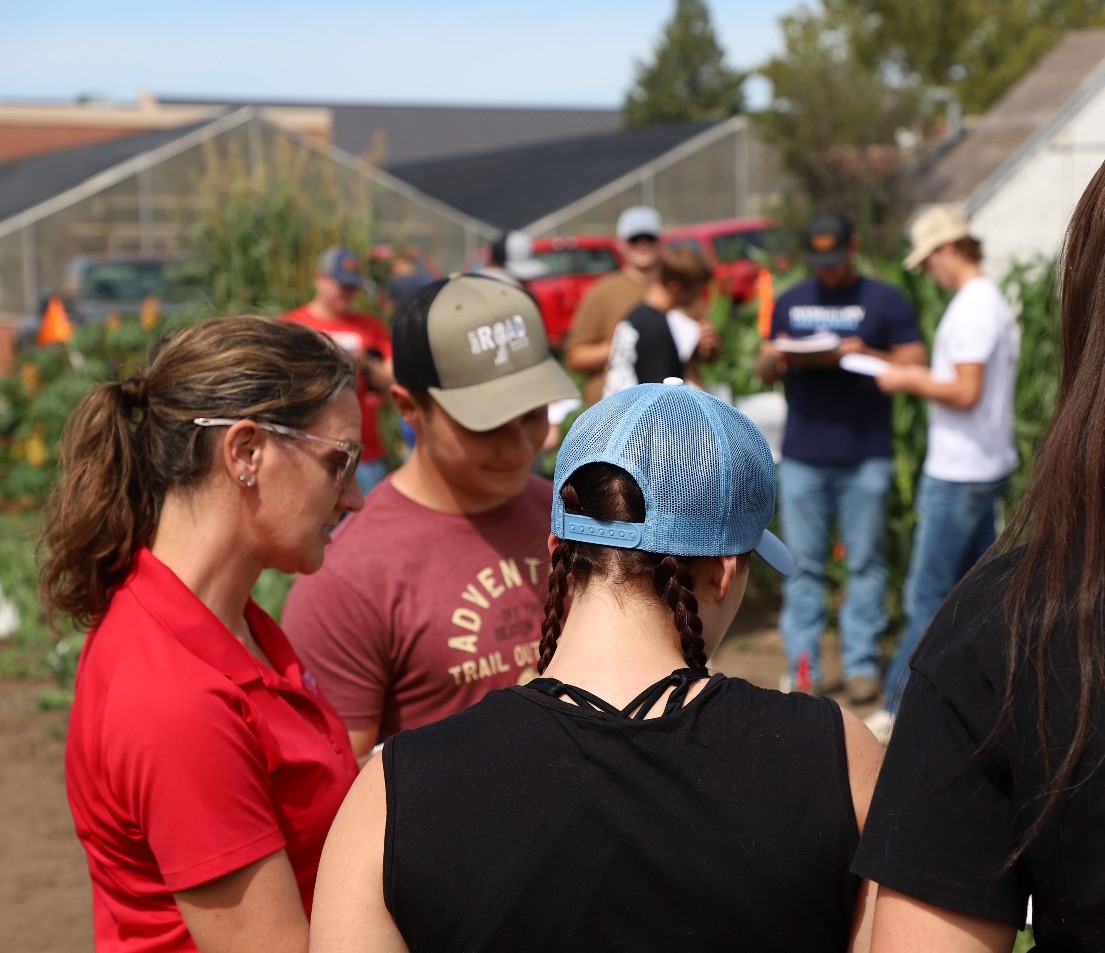
Gabrielle Clifton says she spent a dynamic summer with a super great company.
This agronomy student from Columbia, Missouri worked as a Sales and Research Intern at Green Cover where she applied and expanded her technical knowledge of plant production.
“I had many roles during my internship including working with the sales team to sell cover crop seed, assisting with field day events, documenting corn and soybean interseeding trials, and test plot planting, maintenance, and sampling,” Clifton said, “Throughout the summer I have learned a lot about sales processes, soil health, and cover crop species and scenarios.”
Clifton, along with many of her peers, has a passion for plants. Career pathways working in plant science offer a wide variety of choices: agriculture, plant breeding, genetics, grassland conservation, landscaping, groundskeeping, agronomy, floral design, biotechnology, soil science, hydroponics, and more.
The Department of Agronomy and Horticulture in the College of Agricultural Sciences and Natural Resources prepares students to tackle the challenge of producing food, fuel, and fiber for the future. There are three undergraduate majors housed in this department: Agronomy, Plant and Landscape Systems, and Plant Biology. These disciplines allow students to work hands-on in the field, in greenhouses, in labs, and in gardens to understand all aspects of plant life and the conditions it takes to grow successful yields.
From crop production to developing new plants using biotechnology, the agronomy major prepares students to play a role in ensuring tomorrow’s food supply in a sustainable, environmentally responsible way.
The plant and landscape systems major empowers students to connect with people, cultivate ideas, discover new opportunities, and acquire the skills necessary to feed and enrich the lives of a growing global population. Students choose to focus on options of horticulture, landscape design and management, and turfgrass science and management.
As a plant biology major, students learn about plants at every level- molecular, cellular, organismal, systematic, and ecological. A degree in Plant Biology can qualify you for a wide range of careers including plant breeding, genetic engineering, plant research, field biology, horticulture, and more.
Keim Hall and Plant Sciences Hall on East Campus are home to the Department of Agronomy and Horticulture. Beyond those classrooms, additional facilities include the Backyard Farmer Garden, teaching greenhouses, a hydroponics lab, and turfgrass plots. Students are encouraged to participate in experiential learning in class time, but also through additional opportunities like clubs and organizations, internships, competition teams, and research projects.
Gabrielle Clifton knows that being out in the field with a career in agronomy is where she wants to be. There are a multitude of ways to turn a love for plants into a lucrative career!
More details at: https://agronomy.unl.edu/academic-programs/undergraduate-programs/